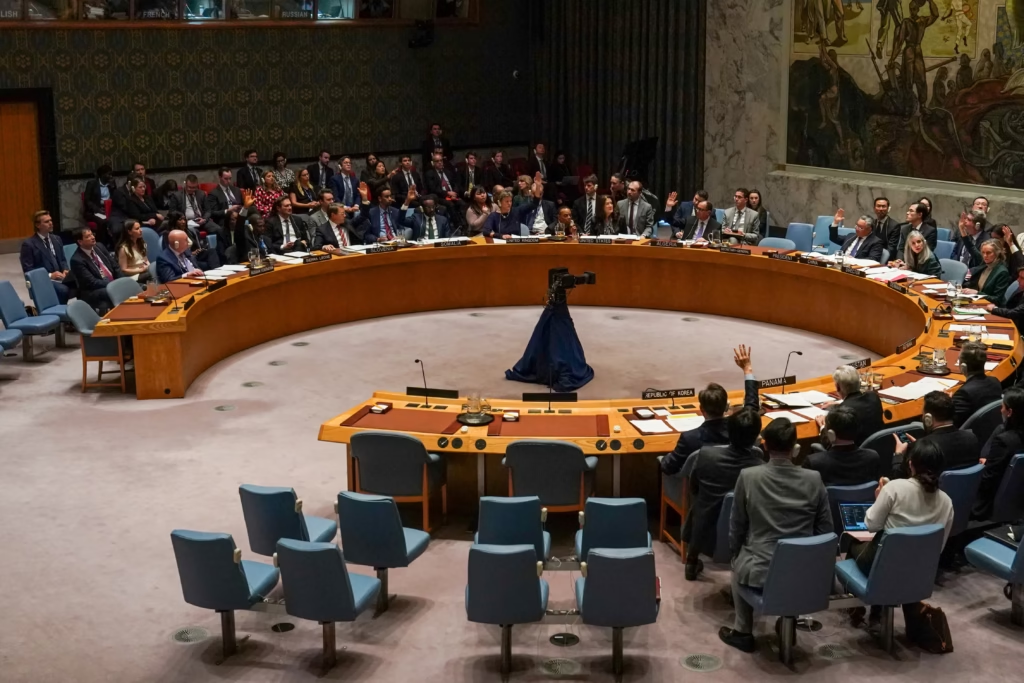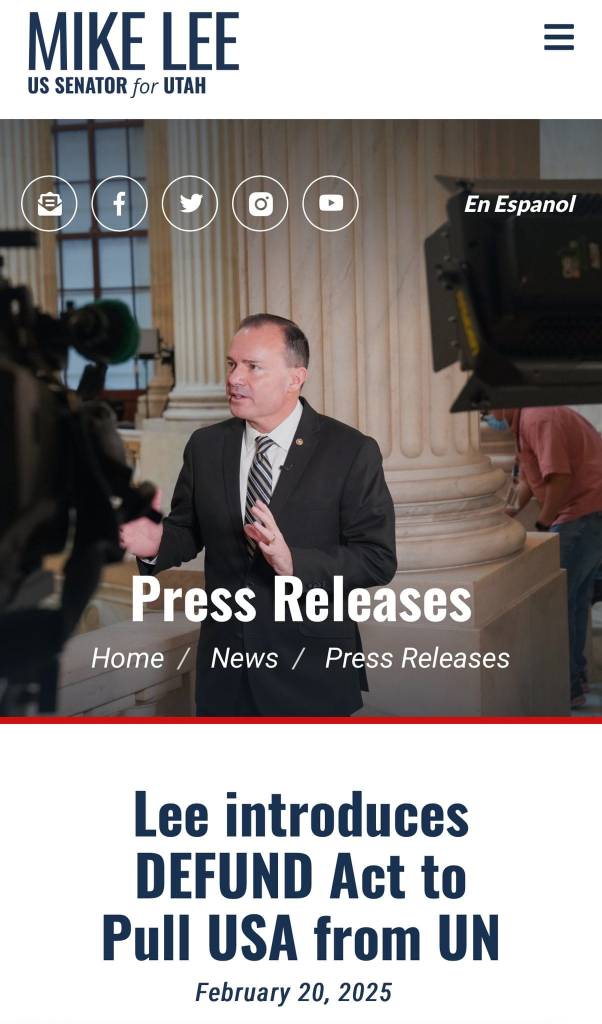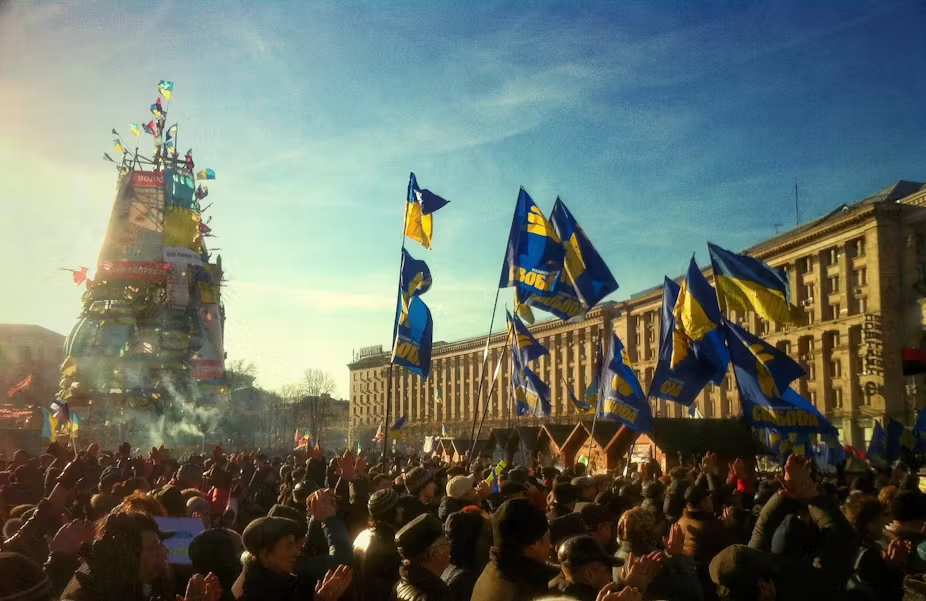What if the U.S. and North Korea actually agreed on something? Sounds impossible, right? But at the latest UN vote on Russia’s invasion of Ukraine, the U.S., Russia, North Korea, and Israel—yes, you read that right—all landed on the same side.
Meanwhile, cracks are forming in the Western alliance, the U.S. is flirting with the idea of quitting the UN, and Ukraine might be wondering if giving up its nukes was the worst decision it ever made. Buckle up—this one’s a wild ride.
Table of Contents

UN Vote on Russia’s Invasion Takes a Shocking Turn
1. A major stir erupted at the UN General Assembly recently.
2. The assembly voted on a resolution condemning Russia’s invasion of Ukraine.
3. The resolution essentially stated:
“This war is defined as Russian aggression against Ukraine, and previous UN General Assembly resolutions condemning Russia must be upheld.
Russia must immediately, fully, and unconditionally withdraw its military forces from internationally recognized Ukrainian territory and cease hostilities.”
4. Nothing particularly new here; similar resolutions have been passed multiple times before.
5. But the voting results? Completely unexpected.

6. Ninety-three countries voted in favor of condemning Russia, 18 opposed, and 65 abstained.
A Surprising Divide Among Nations
7. Supporters included the EU, Japan, Australia, and Canada.
8. Meanwhile, China, Brazil, India, Panama, Qatar, Iraq, Saudi Arabia, Kuwait, and Vietnam chose to sit this one out.
9. The 18 countries that opposed the resolution? Now that’s where things get interesting.
10. Russia’s “no” vote was expected, but the U.S., Israel, and North Korea also gave it a thumbs down.
11. The U.S. didn’t just oppose; it pitched its own version.
12. The American proposal skipped over the “Russian aggression” part, instead calling for a swift end to the conflict and lasting peace between Ukraine and Russia.
13. But the U.S. resolution failed to gain enough support and wasn’t even put to a vote.
14. The EU and the UK then tweaked the U.S. draft, bringing back the term “invasion.” This version passed with 93 votes in favor, 8 against, and 73 abstentions.
15. The U.S. failed to gain broad support, highlighting some cracks in the Western alliance.
16. So, the U.S. took its proposal to the UN Security Council.

16. There, it passed with 10 votes in favor and 5 abstentions.
17. Countries like France and the UK, instead of opposing it, abstained – letting the resolution slide through.
18. With divisions growing among Western allies, talk of the U.S. quitting the UN is gaining momentum.
19. On February 20, 2025, Republican Senator Mike Lee introduced a bill proposing the U.S. withdraw from the United Nations.

Did Ukraine Make a Huge Mistake?
20. Seeing the U.S. take a hard stance, Ukraine might be feeling some serious regret.
21. Ukraine wasn’t always in this position—it was once a military powerhouse.
22. When it gained independence from the Soviet Union in 1991, Ukraine inherited a massive stockpile of Soviet military equipment and infrastructure.

23. At that time, it had 780,000 troops and was the world’s third-largest nuclear power.
24. It possessed 44 Tu-160 strategic bombers, each capable of carrying 10 nuclear warheads over 6,800 miles (11,000 km.)
25. Ukraine also had missile silos with 176 intercontinental ballistic missiles (ICBMs), armed with 1,240 nuclear warheads.
26. If needed, it could have loaded nuclear warheads onto 1,081 X-22H Burya cruise missiles.
The Nuclear Gamble That Backfired
27. In 1994, Ukraine agreed to give up its nuclear weapons in a deal with Russia, the U.S., and the UK.
28. The U.S. and UK feared Ukrainian nukes might fall into terrorist hands, while Russia simply didn’t want Ukraine to have them.
29. The three nations made a deal: if Ukraine surrendered its nuclear arsenal, Russia, the U.S., and the UK would guarantee its security.
30. Ukraine believed in this promise.
31. It dismantled thousands of nuclear warheads and became a non-nuclear state.
32. The uranium from those warheads? It was sent to the U.S. for use in nuclear reactors.
33. Then reality hit—Russia invaded Ukraine anyway, and the U.S. has failed to uphold its security commitments.

Alphazen insights : When Trust Becomes a Gamble

If history has taught us anything, it’s that international promises are only as strong as the political interests backing them. Ukraine bet its security on a deal signed by Russia, the U.S., and the UK—only to find out that agreements can crumble faster than a sandcastle in high tide.
And here’s a plot twist no one saw coming: the U.S., Russia, North Korea, and Israel—four countries that rarely agree on anything—ended up voting the same way at the UN. If that’s not a sign of shifting global alliances, what is?
With the U.S. toying with the idea of leaving the UN and Western unity looking more fragile than ever, don’t be surprised if more nations start hedging their bets and making their own security moves. Because in today’s world, trust isn’t just a luxury—it’s a risk.
Discover more from Alphazen Dynamics
Subscribe to get the latest posts sent to your email.



